“In the swimming school of souls over the talking desert”

While out west last month to visit my long-distance partner, I went on a roadtrip to Phoenix. One of my trip highlights was an encounter with Cardboard House Press, an independent publisher of bilingual Latin American poetry. I attended their free book arts workshop Cartonera Collective Phoenix, facilitated by Raquel Denis and Ryan Greene (whose translation of Ana Belén López’s rojo si pudiera ser rojo // red if it could be red is forthcoming from Anomalous Press). The intimate event took place at Palabras Bilingual Bookstore, a hip communal gathering space with an impressively well-curated selection of English and Spanish books.
Cartonera Collective — which also has satellite workshops in New York and Santa Cruz, thanks to a grant from the National Association of Latino Arts and Cultures — exemplifies the larger Latin American cartonera publishing movement, which originated in Buenos Aires in 2003 at the Eloísa Cartonera. Cartoneras have quickly spread across Latin America, pushing forward a vision of sustainable and accessible independent publishing. Small presses gather community around making handmade limited edition books out of repurposed cardboard, which are then sold at an affordable price. Not only is it economical, it is also political: a democratized route to bookmaking that builds tangible relationships between readers, publishers, writers, and material.
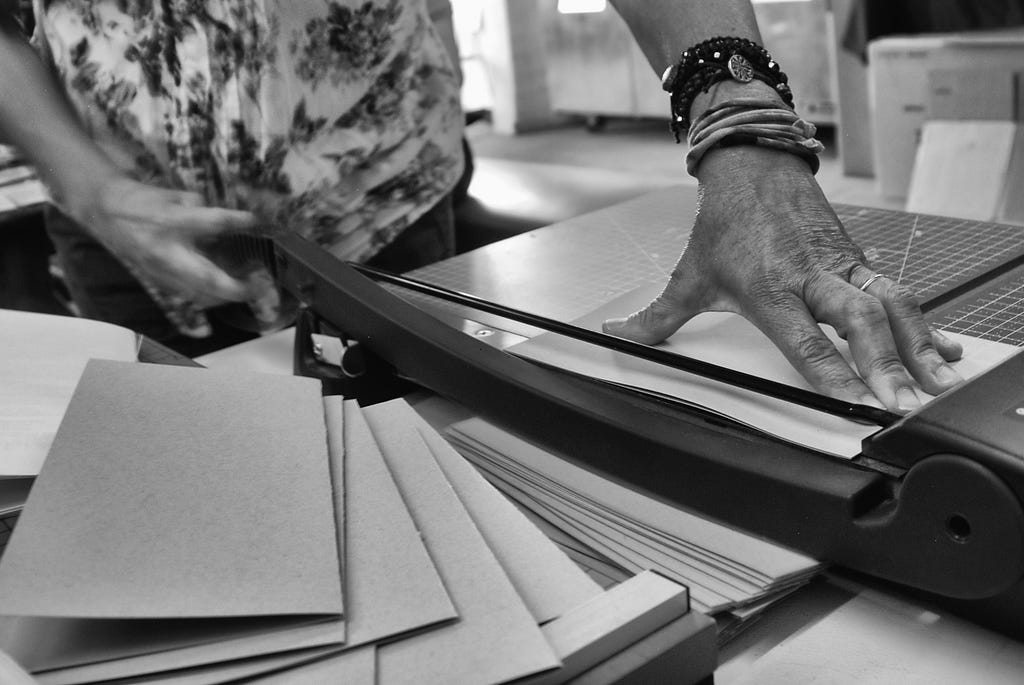
The workshop attendees at Palabras had strong camaraderie and welcomed to me as a newcomer. A number were writers or translators themselves, some performing later that night at the bookstore’s standing-room only POC It 2 Me open mic night. On that particular day, our task was to assemble Juan José Rodinás’s Koan Underwater, a sewn-bound︎ screen-printed book with a sleek cut-off cardboard cover.
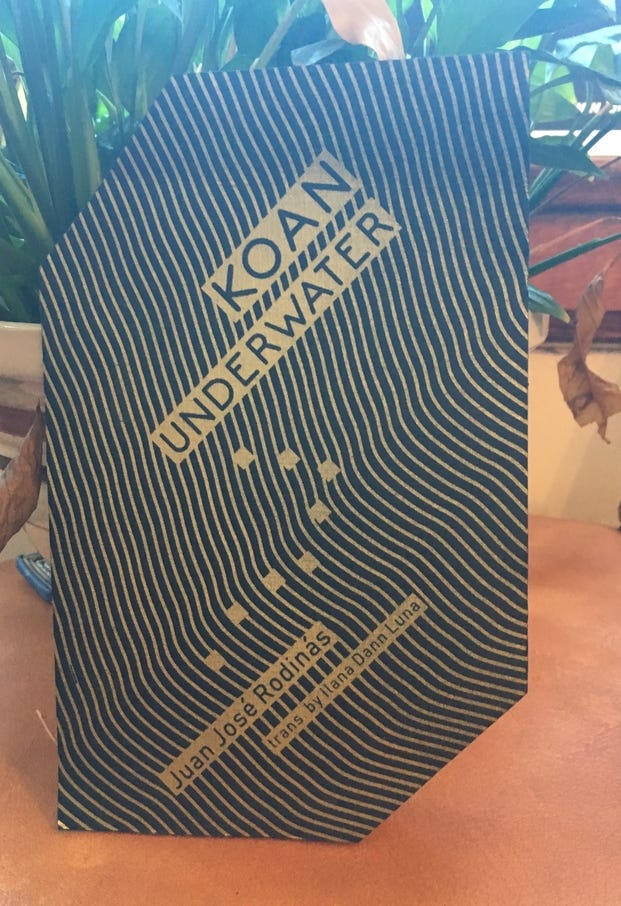
As the day’s work session wrapped up, participants flipped open to the same poem “Koan Cage, Sonata II for Piano,” which the group read aloud in both Spanish and English. Someone audibly gasped at the opening word “silabacerebroreja” (the poet’s portmanteau, which Ilana Dann Luna translated as “syllablearbrain”). Generous laughter around the room as everyone joined in the admiration. When I asked how soon I could purchase the book, the facilitators generously insisted that I take an advance copy for free.
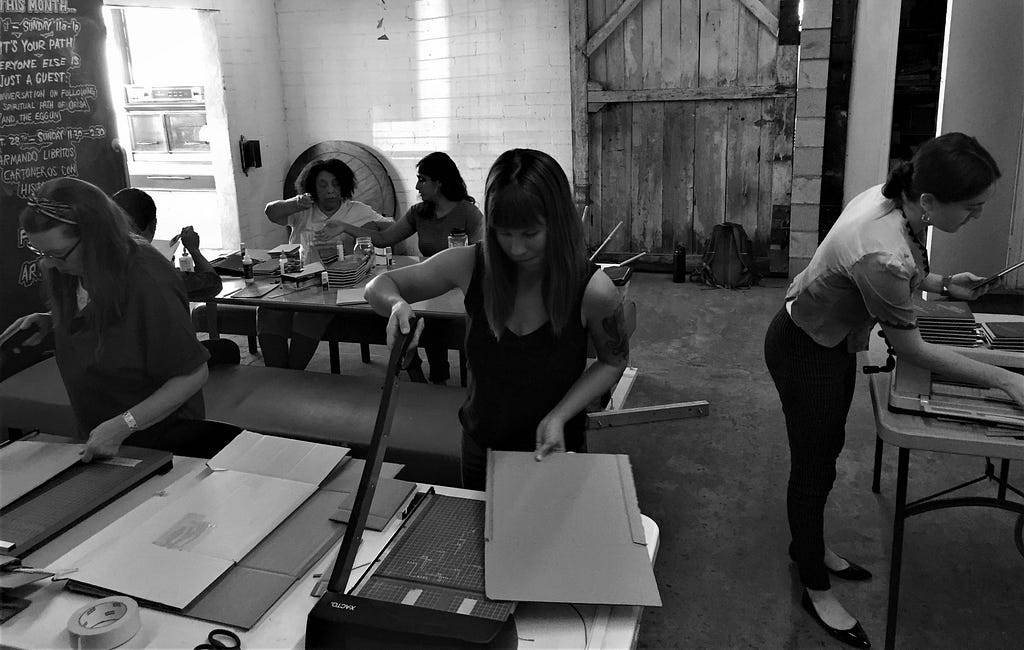
Once I got home, I had more time to pore over the book. Meaning eluded me as I made my first read-through, especially as I encountered the koans’ paradoxical logic. Seeming contradictions like “the wandering eye that falls, / everywhere and nowhere” or “you can be a wolf, but if you’re a wolf, you’ll be dead” puzzled me more than delivered delight. Eventually, however, I found a stanza that gave me a point of entry:
Eye within sound.
Ear of the untranslatable dead.
Open a no.
Recycle.
Listen.
The synesthetic image of an eye within sound made strange sense to me as a musician. Playful, process-oriented directives like “Open a no” (with its open-mouthed physiognomy, as well as its metaphysical suggestion of finding a door out of a negative) helped me tune into the poetry’s Neobaroque sensory landscapes. I allowed the surreal, associative drift of Rodinás’s poems to wash over me like a dream. I surrendered to the escapist delights of “ufological tango” and other extraterrestrial sightings. And suddenly, Rodinás’s book provided “[a]n airport to get out of this world. / A world to get out of myself.”
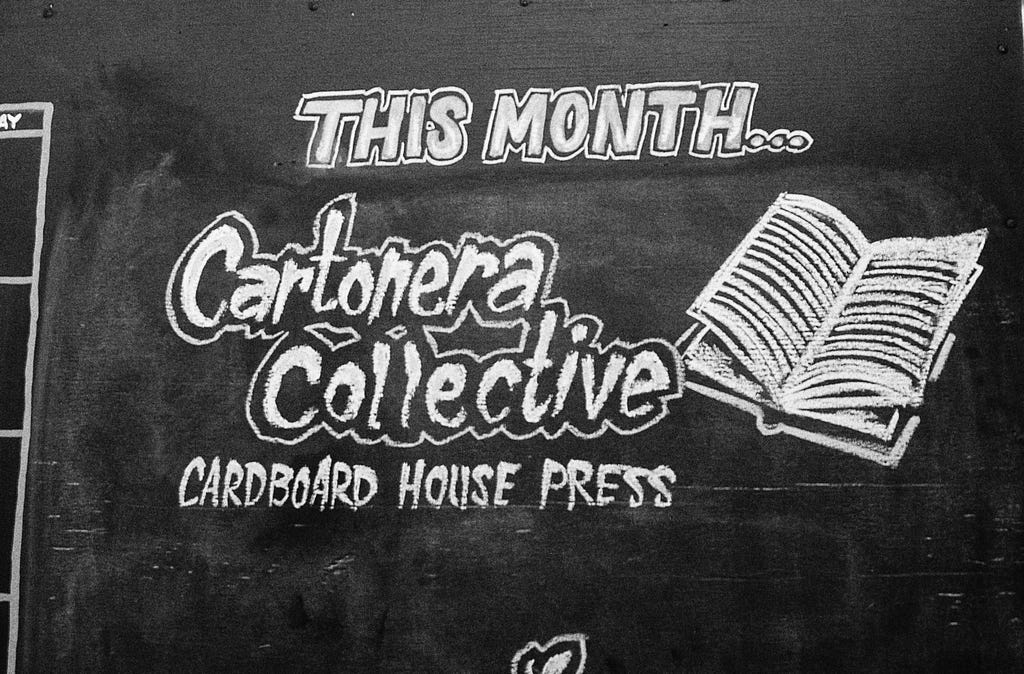
Here’s a smattering of lines from my favorite poem in the collection, “Beautiful Flowers on the Highways of the Night”:
“The night asks, ‘include me in the picture,’ while someone
is crying and we get lost.”
“Stars count. They count the trains.”
“Ask me for sober explanations
like powdered stars. Yes. The night asks me for my sorrows.
There are signs that say: Sex shop, clinic, money.
In effect, I’m someone made only of matter
when he goes outside the frame.”
“Here I stroke an animal cobbled and rough
But whose wounds are the shapes of a border in motion.”
“Probability sings of so many flowers alive or dead.”
Subject and object blur, their edges improbably in motion. A surreal borderlands, wherein conceptual orders of animacy oscillate so that stars can count (rather than be counted) and night can ask for sorrows.
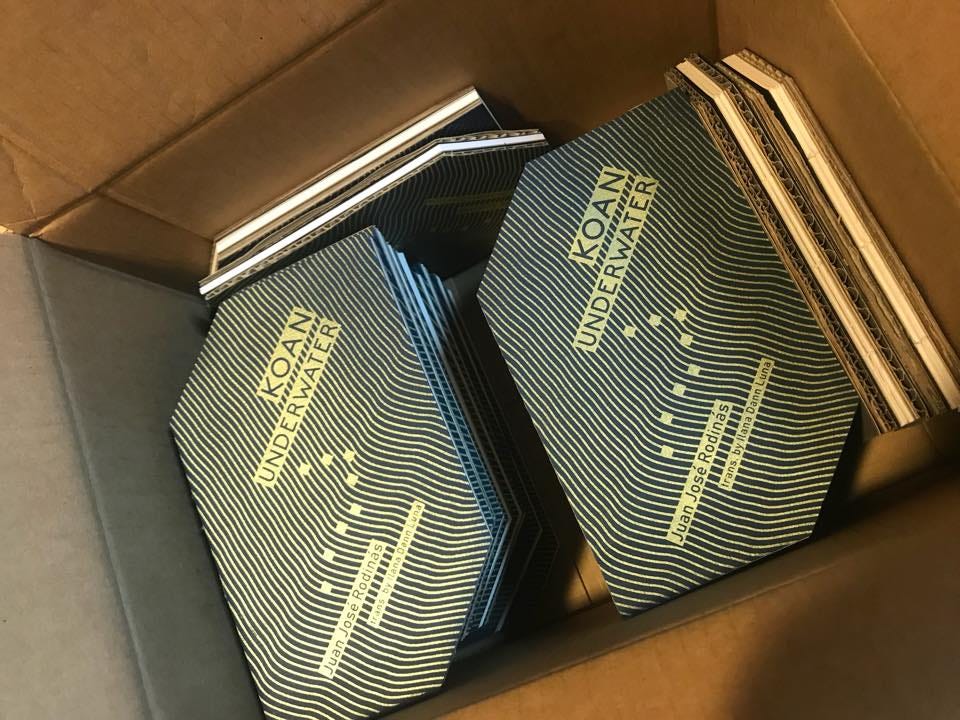
Rodinás’s koans resurface from underwater logic, ripple with doublings and eery (eary?) recurrences in musical sequence. A hearty recommendation for Koan Underwater: yet another hit from Cardboard House Press.
A Report from the Cartonera Collective was originally published in Anomaly on Medium, where people are continuing the conversation by highlighting and responding to this story.
